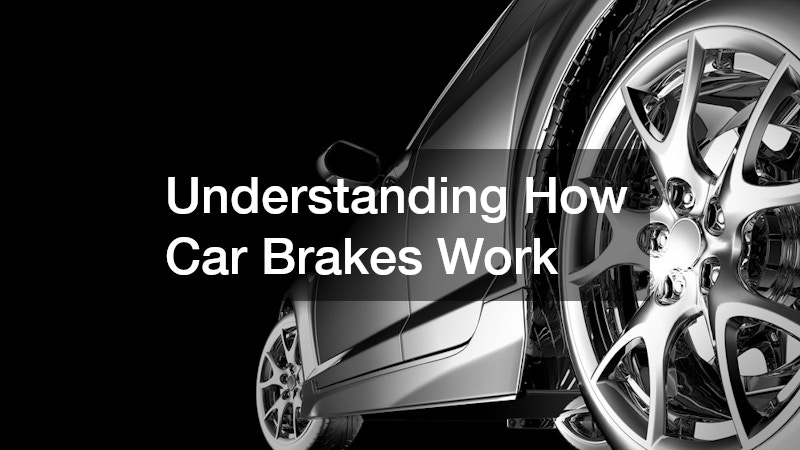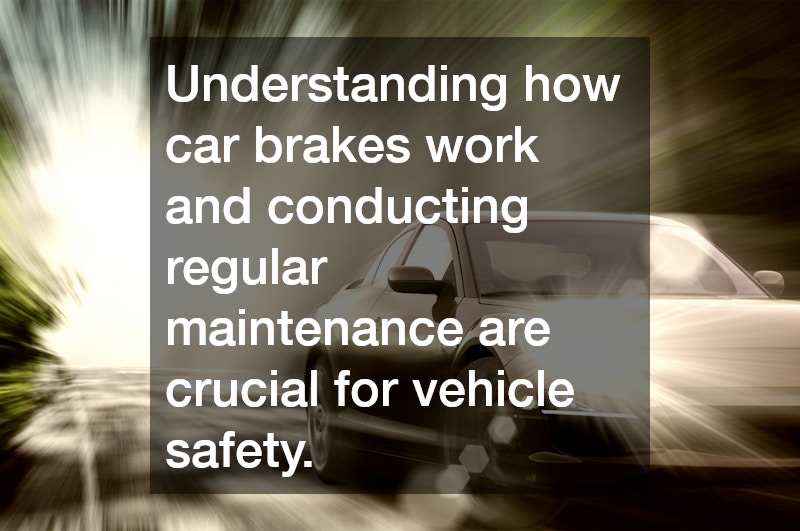

Understanding how car brakes work is essential for every driver, as it plays a crucial role in vehicle safety and maintenance. Brakes are the primary safety feature of any vehicle, ensuring that it can stop effectively and safely. Regular knowledge and check-ups of your braking systems ensure not only smooth driving but also longevity of the vehicle components, especially on the roads of Knoxville, TN.
How Do Car Brakes Work?
The Basics of Braking Systems
Braking systems in vehicles operate on the simple principle of converting kinetic energy into heat through friction. The main components involved include the brake pads, rotors, and calipers, all working together to bring a moving vehicle to a stop. Understanding these components allows drivers in Knoxville, TN, to grasp how crucial each part is in ensuring your car stops when needed.
When the brake pedal is pressed, hydraulic pressure generated by the brake fluid causes the brake calipers to push the pads against the rotors. This contact generates friction, which is critical in slowing down the rotation of the wheels. Drivers should be aware that keeping these components in good condition is vital for safe driving.
Types of Car Brakes
Two main types of brakes are prevalent in the automotive industry: disc brakes and drum brakes. Disc brakes, commonly found in cars in Knoxville, TN, use a disc rotor and a caliper to slow down the wheel rotation by creating friction. Meanwhile, drum brakes rely on brake shoes that press outward against a rotating drum to stop the vehicle.
Disc brakes tend to be more efficient at heat dissipation, making them ideal for high-performance cars or vehicles frequently subjected to heavy braking. On the other hand, drum brakes, often used in rear wheels, are typically more cost-effective and easier to maintain. Understanding these differences aids drivers in making informed decisions when maintaining or replacing braking systems.
The Role of Brake Fluid
Brake fluid is a critical component of the braking system, acting as the hydraulic fluid that transfers the force from the brake pedal to the brake calipers. Without adequate brake fluid, the braking system would fail to operate effectively, compromising vehicle safety. Therefore, monitoring and maintaining the appropriate level of brake fluid is essential for safe driving.
Brake fluid needs to withstand extreme temperatures and maintain its viscosity to ensure efficient transfer of force. Over time, brake fluid can absorb moisture, leading to a decrease in its boiling point and potentially causing brake failure. Regularly checking for leaks and ensuring the fluid remains uncontaminated helps maintain optimal braking performance.
When to Replace Car Brakes?
Signs of Brake Wear
Recognizing the signs of brake wear can help prevent severe safety hazards on the road. If drivers notice squeaking or grinding noises when applying the brakes, it’s a strong indicator that the brake pads may need replacing. Similarly, a spongy brake pedal or increased stopping distance should prompt immediate attention.
Visual inspections can also reveal problems, such as excessive pad wear or rotor damage. Regularly checking these components helps avoid unexpected brake failures. Being vigilant about these signs and addressing issues promptly is crucial, particularly in high-traffic areas like Knoxville, TN.
Inspection and Maintenance Tips
Regular inspection and maintenance of braking systems are critical for ensuring their longevity and performance. One basic maintenance tip is to check the thickness of the brake pads regularly and replace them before they are too thin. Additionally, inspecting brake rotors for warping or scoring is crucial for maintaining smooth braking operation.
It’s also vital to ensure that the brake fluid is at the correct level and is replaced as recommended by the vehicle manufacturer. Drivers should also keep an ear out for unusual noises when braking, which may indicate a problem. Scheduling regular brake inspections with a professional mechanic can help catch issues early and maintain vehicle safety.
Choosing the Right Brake Services in Knoxville, TN
When it comes to brake maintenance or replacement, choosing the right service provider is vital. Factors include the service provider’s reputation, the expertise of their technicians, and the quality of parts they use. In Knoxville, TN, many reputable service centers offer comprehensive brake services.
Opt for services that provide transparent pricing, warranties on parts and labor, and flexible scheduling. Ensure that the service provider uses high-quality or original equipment manufacturer (OEM) parts to maintain vehicle integrity. A reliable local service ensures that your brakes are in top condition for safe driving.
In conclusion, understanding how car brakes work and conducting regular maintenance are crucial for vehicle safety. From comprehending the basics of braking systems to identifying signs of wear, staying informed can prevent costly repairs and potential accidents. Always prioritize professional service maintenance, especially in Knoxville, TN, where expert guidance can elevate vehicle safety and performance.
.
